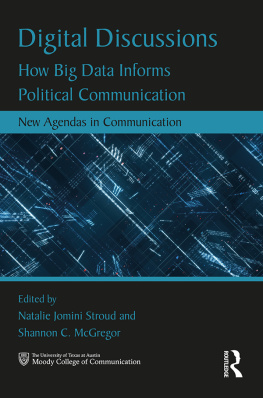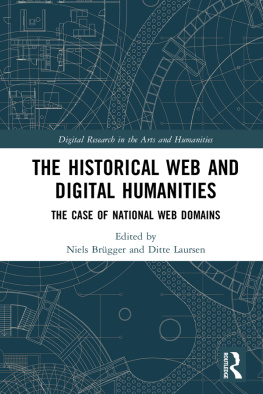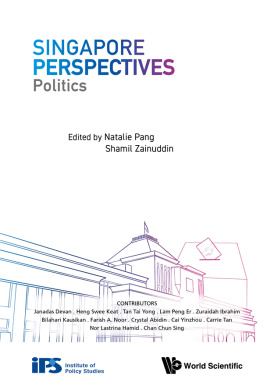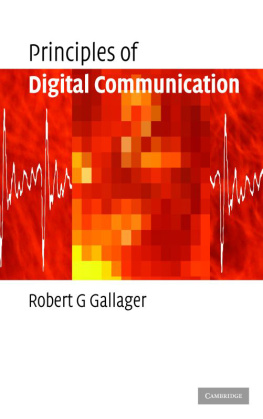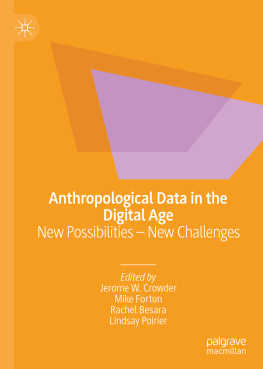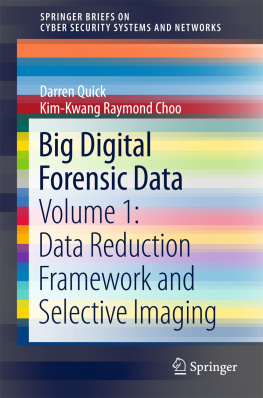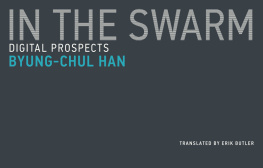Digital Discussions
Big data raise major research possibilities for political communication scholars who are interested in how citizens, elites, and journalists interact. With the availability of social media data, academics can observe, on a large scale, how people talk about politics. The opportunity to study political discussions is also available to media organizations and political elitesexamining how they make use of big data represents another fruitful scholarly trajectory. The scholars involved in Digital Discussions represent forward thinkers who aim to inform the study of political communication by analyzing the behavior of and messages left by citizens, elites, and journalists in digital spaces. By using a variety of methodological approaches and bringing together diverse theoretical perspectives, this group sheds light on how big data can inform political communication research. It is critical reading for those studying and working in communication studies with a focus on big data.
Natalie Jomini Stroud is an associate professor in the Department of Communication Studies and the School of Journalism, Director of the Center for Media Engagement, and Assistant Director of Research at the Annette Strauss Institute for Civic Life in the Moody College of Communication at the University of Texas at Austin. Her research focuses on selective exposure, media effects, and the role of journalism in a democracy.
Shannon C. McGregor is an assistant professor in the Department of Communication at The University of Utah. Her research interests center on political communication, social media, public opinion, gender, news, and data. Her research has been published in the Journal of Communication, Political Communication, New Media & Society, Information, Communication & Society, Social Media + Society, and the Journal of Broadcasting & Electronic Media.
New Agendas in Communication
A Series from Routledge and the College of Communication at the University of Texas at Austin
Roderick Hart and Stephen Reese, Series Editors
This series brings together groups of emerging scholars to tackle important interdisciplinary themes that demand new scholarly attention and broadly reach across the communication fields existing courses. Each volume stakes out a key area, presents original findings, and considers the long-range implications of its new agenda.
Recent series titles include:
Digital Discussions: How Big Data Informs Political Communication
edited by Natalie Jomini Stroud and Shannon C. McGregor
Work Pressures
edited by Dawna I. Ballard and Matthew S. McGlone
Strategic Communication
edited by Anthony Dudo and LeeAnn Kahlor
Networked China: Global Dynamics of Digital Media and Civic Engagement
edited by Wenhong Chen and Stephen D. Reese
New Technologies and Civic Engagement
edited by Homero Gil de Ziga
The full list of series volumes is available at www.routledge.com.
Digital Discussions
How Big Data Informs Political Communication
Edited by
Natalie Jomini Stroud and Shannon C. McGregor
First published 2019
by Routledge
711 Third Avenue, New York, NY 10017
and by Routledge
2 Park Square, Milton Park, Abingdon, Oxon OX14 4RN
Routledge is an imprint of the Taylor & Francis Group, an informa business
2019 Taylor & Francis
The right of the editors to be identified as the authors of the editorial material, and of the authors for their individual chapters, has been asserted in accordance with sections 77 and 78 of the Copyright, Designs and Patents Act 1988.
All rights reserved. No part of this book may be reprinted or reproduced or utilised in any form or by any electronic, mechanical, or other means, now known or hereafter invented, including photocopying and recording, or in any information storage or retrieval system, without permission in writing from the publishers.
Trademark notice: Product or corporate names may be trademarks or registered trademarks, and are used only for identification and explanation without intent to infringe.
Library of Congress Cataloging in Publication Data
A catalog record has been requested for this book
ISBN: 978-0-8153-8380-2 (hbk)
ISBN: 978-0-8153-8186-0 (pbk)
ISBN: 978-1-351-20943-4 (ebk)
Typeset in Bembo
by Out of House Publishing
Contents
Natalie Jomini Stroud and Shannon C. McGregor
Andreas Jungherr
Leticia Bode
Lei Guo
Josh Pasek and Jake Dailey
Deen Freelon
Ashley Muddiman
Chris Vargo and Toby Hopp
Jessica Baldwin-Philippi
Ayellet Pelled, Josephine Lukito, Fred Boehm, JungHwan Yang, and Dhavan Shah
Jessica Baldwin-Philippi is an assistant professor in Fordham Universitys Communication and Media Studies department. Her work is fundamentally concerned with how engagement with new technologies can restructure forms of political participation and ideas about citizenship. Her book, Using Technology, Building Democracy: Digital Campaigning and the Construction of Citizenship (Oxford, 2015) investigates the digital strategies and tactics that electoral campaigns have adopted at both the local and national level.
Leticia Bode is an assistant professor in the Communication, Culture, and Technology masters program at Georgetown University. Her work lies at the intersection of communication, technology, and political behavior, emphasizing the role communication and information technologies may play in the acquisition and use of political information.
Frederick Boehm is a Ph.D. candidate in statistics at the University of Wisconsin-Madison. He has research interests in quantitative analyses for online media. His research has appeared in the journal Political Communication.
Jake Dailey is a senior data scientist at the Nielsen company. His work focuses on using applications of data science and machine learning to improve audience measurement, particularly for digital audiences. The political communication research featured in this book was conducted at the University of Michigan under the mentorship of Dr Pasek.
Deen Freelon is an associate professor in the School of Media and Journalism at the University of North Carolina at Chapel Hill. His research covers two major areas of scholarship; 1) political expression through digital media; and 2) data science and computational methods for analyzing large digital datasets. He has authored or co-authored more than 30 journal articles, book chapters, and public reports, in addition to co-editing one scholarly book. He has served as principal investigator on grants from the Knight Foundation, the Spencer Foundation, and the U.S. Institute of Peace. He has written research-grade software to calculate intercoder reliability for content analysis (ReCal), to analyze large-scale network data from social media (TSM), and to collect data from Facebook (fb_scrape_public). He formerly taught at the American University in Washington, DC.
Lei Guo is an assistant professor of emerging media studies at Boston University. Her research focuses on the development of media effects theories, computational social science methodologies, and emerging media and democracy in the United States and China. Her research has been published in a number of leading peer-reviewed journals, such as


